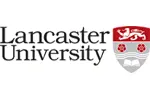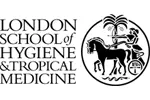Medical statisticians are pivotal to the success of medical and health research. They design and analyse clinical trials, evaluate public health initiatives, and identify the causes and risk factors of diseases. Here at Lancaster, our world-leading researchers provide you with a firm foundation in statistical theory alongside modern analytical computational skills. With a growing demand for medical statisticians and evidence-based health research, you have the opportunity to shape the future of these fields with advanced statistical expertise.
Who is this programme for?
Are you interested in understanding how statistics can be used to design efficient clinical trials as part of the drug discovery process? Are you curious about how the outcomes of patients on different treatment plans can be compared? Have you ever paused to think about how you might evaluate the effectiveness of a new vaccine in the middle of a pandemic? The MSc Medical Statistics will develop your expertise in statistical methods for the medical and pharmaceutical industries, with the intention of progressing your career in these fields.
Looking ahead to employability
Our world-leading medical statistics researchers actively collaborate with external partners, ensuring that what we teach brings insights to the classroom that cannot be obtained from a textbook. We deliver a hands-on data approach, blending theory with practical applications to real-world challenges. You will graduate with a comprehensive skill set, including design of clinical trials, analysis of health data, logical thinking, problem-solving and quantitative reasoning. We also develop your:
- Confidence in computing through application to data analysis and manipulation
- Critical thinking and statistical modelling skills through individual and group project work
- Communication and collaboration skills through oral and written exercises
- Ability to devise appropriate designs for medical studies to ensure the research question can be answered in a definitive and efficient manner, avoiding sources of bias
- Awareness of ethical issues in the design and analysis of medical studies and the responsibilities of medical statisticians within a research team
What to expect
There are three phases to your learning. You will begin by developing and strengthening your core knowledge and skills in statistical methods and inference. Topics covered include frequentist and Bayesian inference, data analysis, generalised linear models, statistical computing and communication.
In phase two you will study three medical statistics modules. This provides you with the essential training required by the medical and pharmaceutical industries, although the methods have been used in other areas including social and environmental statistics.
In phase three you will complete your dissertation. Working under the guidance of an experienced statistical researcher, you will complete an extended project that is tailored to your interests. You might progress your understanding of a topic covered in a taught module, investigate a methodological topic not covered by one of the taught modules, or undertake an extended data analysis.
Three things we would like you to know
- Many of our statistics graduates are now leaders in their fields, securing employment shortly after completing their MSc
- We maintain small class sizes allowing you to get to know your lecturers, tutors and classmates
- Our research directly influenced the UK government's response to the Covid-19 pandemic and contributed to the search for effective treatments for the disease









